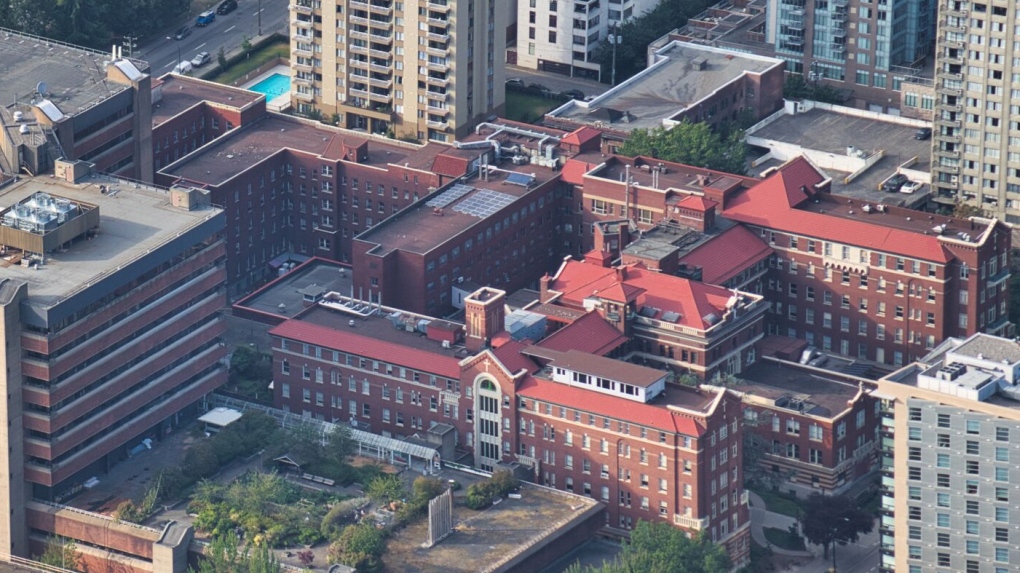Capital Punishment: Death By Lethal Injection
"The
government says, 'You're getting public funding, so youhave to do what
we say', but they will not allow any kind of private [facility]."
"They paint you into a corner where they've taken all your options away."
"Hospitals
that are publicly funded don't provide all services [some don't operate
a maternity ward so pregnant women must be sent elsewhere]."
"Faith-based institutions are now the only sanctuaries for the dying. I'm not fighting against anybody who wants MAID."
"I speak for the ones who want an authentic palliative care experience at the end of life."
Angelina Ireland, president, Delta Hospice Society
 |
"That wasn't patient-focused care as we would expect it to be [transferring a stage four cervical cancer patient sedated at St.Paul's before being moved to a hospice; later MAID administered to patient never having gained consciousness].""So, we are absolutely talking to Providence and absolutely talking to St.Paul's about addressing this issue together.""[The British Columbia government in discussions with a Catholic-administered health authority to resolve] the issue [of its policy to transfer patients to another facility to access MAID rather than administer it themselves].""It is not a decision for any organization to impose or influence on patients Put simply, an individual has the right to receive medical assistance in dying where they reside in B.C."B.C. Health Minister Adrian Dix
"Another concern to keep in mind is the fact that it is cheaper to kill people than to take care of them, so in a society that is budget-stretched and short of beds, euthanasia is one way of saving money."Dr. Balfour Mount, father of North America palliative care
 |
| Woman denied assisted death at St.Paul's Hospital |
A recently published academic report out of Cambridge University Press condemns Canada's Medical Assistance in Dying (MAID) regime,
citing its targeting of those lacking insufficient medical, disability
or social supports. Much less the regime's lack of oversight and
safeguards. A totally inhumane, flawed program to respond to the pleas
of people whose suffering through end-of-life medical crises that flouts
the very purpose of a universal medical system designed to deliver good
health care to a population denies compassionate palliative care
alternatives.
As
an example, the government of British Columbia is determined to ensure
that all publicly-funded hospitals administer MAID, even Catholic
institutions which are fundamentally opposed to assisted suicide, opting
instead for palliative care for critically ill patients whose deaths
are foreseeable. The Irene Thomas Hospice in Delta, British Columbia,
operated by the Delta Hospice Society had refused to provide MAID on
religious grounds. Its government funding was rescinded.
Now,
the B.C. government is in discussions with a Catholic-run health
authority, St. Paul's Hospital operated by Providence Health Care, which
does not provide euthanasia. There are those among the community of
euthanasia advocates who want an end to faith-based transfers, and who
feel that hospitals should be forced by government to provide MAID. If
necessary, by the use of non-Catholic doctors and nurses to be present
at the premises, to carry out the procedure.
 |
The "death-on-demand-in-the-bed-I-am-in-now"
imperative is hugely unpopular in religious health communities
committed to providing end-of-life care humanely through palliative
care. They have found themselves under increasing pressure from
governments. Dr. Balfour Mount warned that MAID was not meant to end a
patient's suffering; instead its purpose is to end the sufferer. Death
on demand, expressed in a politer phrase.
His sentiments have been echoed by the new paper published this month titled "The realities of Medical Assistance in Dying in Canada". Back in 2020, in a parliamentary committee, then-minister of disability inclusion noted the problem: "We know that in some places in our country, it's easier to access MAID than it is to get a wheelchair".
In administering and 'upgrading' MAID Canada has chosen to victimize
the weak, the vulnerable, the disabled, the homeless and society's
outcasts.
MAID
was provided in 2021 to 10,064 people, representing a growth rate of
32.4 percent over the year before, according to a report by Health
Canada. Accounting in total for 3.3 percent of all deaths in Canada.
Canada now surpasses all other countries in its enthusiasm and sweep of
provision for assisted deaths under the mantra of ending all suffering
in Canada, where next up for qualification is the mentally ill and
mature minors.
The
kind of coercion contemplated, of governments refusing to fund public
hospitals at a time when there are not enough hospital beds to
accommodate the needs of an aging society, when medical staff are
overworked and in short supply, at a time when the federal government
celebrates the addition of one million immigrants/refugees/students last
year alone, all of whom will require at one time or another medical
treatment, is mind-boggingly destructive.
 |
| St. Paul's Hospital in Vancouver is seen from the air in summer 2019. (Pete Cline / CTV News Vancouver) |
"The fact that providing state facilitated death is more cost-effective than providing supported health-care and community support to facilitate living well raises concerns about conflicting interests: any country facing financial pressures ought to be concerned about perverse cost-cutting incentives that are built into a health-care system.""[Patients were] being guaranteed MAID but not mental health care, palliative care, disability supports, and myriad other essential health services.""The Canadian MAID regime is lacking the safeguards, data collection, and oversight necessary to protect Canadians against premature death.""The rapid expansion of MAID offers cost-savings for governments, creating arguably perverse incentives not to address the inadequacies of the health-care system which would protect against premature wrongful death."Academic report published by doctor group and health law expert, Cambridge University Press
Labels: Catholic Medical Centres, End-of-Life Suffering, Euthanasia in Canada, Juvenile Medi9cal Patients, MAID Zealots, Medical Assistance in Dying, Mental Disorders, Palliative Care, Religious Conviction

<< Home